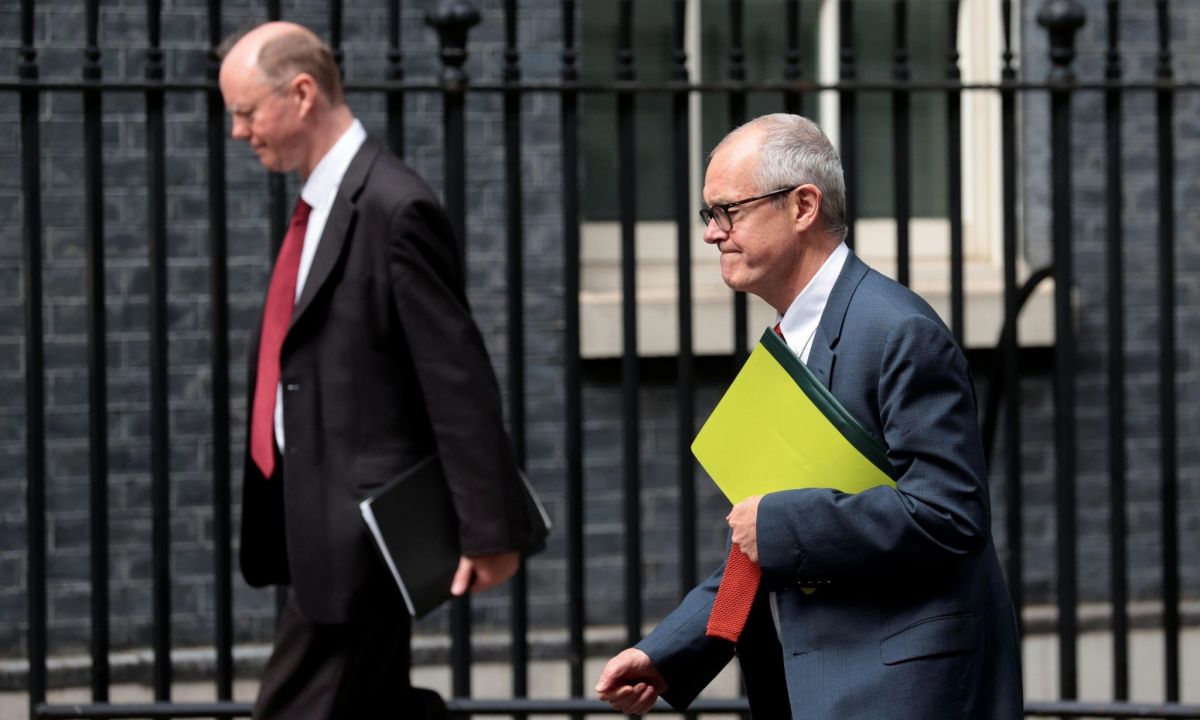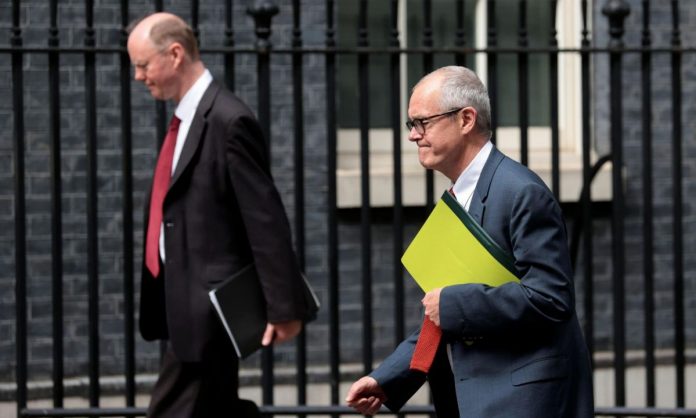
One of the country’s most senior scientists has criticised government for the “shroud of secrecy” drawn over major decisions in the coronavirus crisis and urged ministers to be more open about the reasons behind their policies.
Sir Paul Nurse, the nobel laureate and director of the Francis Crick Institute in London, said important decisions throughout the pandemic had been made in what appeared to be a “black box” of scientists, civil servants and politicians, and called for more transparency and scrutiny.
The failure to be more open about pivotal decisions, and the basis on which they were reached, meant it had been impossible to challenge emerging policy, he said, a situation that fuelled poor decisions and put public trust at risk.
Nurse’s comments came as other senior researchers raised further concerns about the way expert advice is handled in the UK and how the lack of transparency has allowed ministers to claim their policies are driven by scientific evidence.
Prof Nurse, the former president of the Royal Society and a chief scientific advisor to the European Commission, said: “Decisions are too often shrouded in secrecy. They need challenge and we need processes to ensure that happens. If they are going to keep the trust of the nation, they need to make those discussions more public.”
“It sometimes seems like a ‘black box’ made up of scientists, civil servants and politicians are coming up with the decisions,” Nurse added. “It needs to be more open. We need greater transparency, greater scrutiny and greater challenge to get the best results.”
Nurse’s comments came as:
-
It emerged that Boris Johnson and chancellor Rishi Sunak met last week to consider how to avert another nationwide lockdown in the event of a second wave of infections.
-
Melbourne, Australia was put under an overnight curfew for the next six weeks
-
The number of confirmed cases in the UK rose to 304,695 with 46,201 deaths; and nearly 18m worldwide.
-
A major incident was declared in Greater Manchester after infection rates rose in multiple areas, allowing agencies to draw on extra resources and establish a central command to coordinate their response.
Government departments have their own chief scientists, but during a crisis the prime minister and his cabinet are advised by the Scientific Advisory Group for Emergencies (Sage) which has a number of specialist subgroups. Sage is convened by the civil contingencies committee, Cobra, which considers advice from Sage and across government departments. The Sage membership depends on the crisis at hand. During the coronavirus pandemic, it has been roughly half academics and half government employees, including departmental chief scientists and experts from Public Health England, the NHS and the Health and Safety Executive.
Britain’s troubled effort to provide coronavirus testing revealed a number of instances where decisions should have been subjected to more scrutiny, Nurse said. Early on in the outbreak, the government suggested it was doing all the tests needed, yet only a limited number of tests were possible because capacity was so low. “They seemed not to want to admit that they weren’t prepared, that they were unable to do the testing properly, because that would have been an admission of failure from square one,” Nurse said.
Another decision, to build and equip the giant Lighthouse labs from scratch in a bid to scale up testing, resulted in “a total shambles at the height of the pandemic”, Nurse said, because large laboratories take time to set up. “It should have been clear that it would take many months. How was that decision made? It’s completely opaque,” he said.
The post Secrecy has harmed UK government’s response to Covid-19 crisis, says top scientist appeared first on The Guardian.







